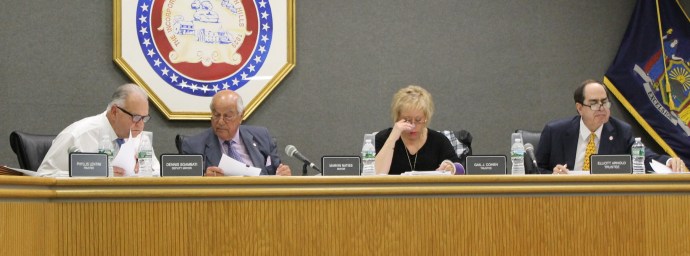North Hills trustees were cautious about discussing potentially converting the village’s lights to light emitting diodes, also known as LEDs, as a lawsuit is pending on the issue in another North Shore village.
North Hills Mayor Marvin Natiss said during a board discussion last Wednesday that he was considering the conversion for Village Hall lights but was concerned about Great Neck resident Judith Youngblood’s $1 million lawsuit against the village, claiming the installation of more than 800 LED streetlights across the village was “disrupting her sleep, impairing her vision and causing her severe stress,” Natiss said.
Natiss said he was in favor of switching the village’s lights to LEDs before he read about the lawsuit, but village Attorney A. Thomas Levin said the lawsuit was not a reason to abandon the idea.
“I don’t know the specifics of the lawsuit, but I don’t think it should concern you,” Levin said. “The essence of that lawsuit is somebody who’s immediately adjacent to one of the places where they’ve changed over and is claiming it’s disturbing her sleep.”
Village Administrator Marianne Lobaccaro said the maintenance costs for some of the lights in Village Hall and in its parking lot were getting costly, which was part of the reason for considering a conversion.
In a 2016 study, the American Medical Association said that the blue light frequency emitted by most LEDs appears white to the naked eye but creates worse nighttime glare for drivers than traditional bulbs.
The study also said the streetlights adversely suppress melatonin at night and estimated that white LED lights have five times greater impact on circadian rhythms than conventional street lamps.
Gov. Andrew Cuomo recently announced that he was pushing for more than 500,000 LED lights to be installed on streets across the state, which he said he hopes would reduce carbon emissions 40 percent by 2030, based on 1990 levels.
Other towns on Long Island, including Huntington, Islip, Brookhaven and Hempstead, have also invested in LED lights in recent years.
Levin said the village should work with a third party to write the specifications and contract if it decide to go out to bid, but made it clear that whoever helps with the numbers should not be allowed to bid on the project.
“Be careful who you ask, because whoever you ask should not be allowed to bid on the conversion,” Levin said. “If they’re going to write your specs, they should not be allowed to bid.”
Natiss said he wanted more information before making a decision to send the project out to bid.

